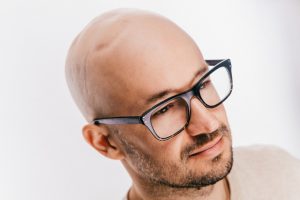Brain Cancer Surgery: Thriving in Recovery
 Brain cancer is a formidable adversary in the world of oncology. Against substantial odds, patients work with dedicated doctors to mount a counter offensive. The road to recovery is, to no one’s astonishment, arduous, as brain surgery exposes the very epicenter of our being, behavior, personality, motor skills and memory. Changes in how a patient thinks, remembers or interacts can demonstrate mild to profound changes vis-à-vis pre-operative (pre-op) norms. According to Johns Hopkins Medicine, the amount of time required for recovery varies by patient according to the procedure used to remove the brain tumor, the location of the tumor, areas of the brain affected by the surgery and the patient’s age and overall health. Depending on these factors, patients can anticipate a range of length and severity of post-op recovery.
Brain cancer is a formidable adversary in the world of oncology. Against substantial odds, patients work with dedicated doctors to mount a counter offensive. The road to recovery is, to no one’s astonishment, arduous, as brain surgery exposes the very epicenter of our being, behavior, personality, motor skills and memory. Changes in how a patient thinks, remembers or interacts can demonstrate mild to profound changes vis-à-vis pre-operative (pre-op) norms. According to Johns Hopkins Medicine, the amount of time required for recovery varies by patient according to the procedure used to remove the brain tumor, the location of the tumor, areas of the brain affected by the surgery and the patient’s age and overall health. Depending on these factors, patients can anticipate a range of length and severity of post-op recovery.
Preparation: Doctors will work diligently to preserve patients’ cognitive abilities, motor skills and memories. “The whole goal of the surgery is to keep people whole, to keep them intact,” says Steven Brem, a neurosurgeon and co-director of the Brain Tumor Center at the Hospital of the University of Pennsylvania in Philadelphia. Talk with your doctor thoroughly about this and ask for specifics, contingencies and plan proactively to engage the right therapists, doctors and pharmaceutical therapies to cater to your individual needs. For example, damage or trauma to the occipital lobe will likely mean sight problems or vision on one side, whereas temporal lobe complications can include short-term memory loss, forgetting words and seizures.
Fatigue: Recovery is not and cannot be a race. Rather it is a slow, determined path. Patients report that after a neurosurgical procedure they notice a substantial lack of energy. In fact, fatigue is the number one side effect reported by patients. Doctors recommend that patients establish routines, write things down, take note of times of day when they have the most energy and then plan to make those times their most productive. Any accomplishment, though small, can provide a much needed boost in morale during recovery. Lastly, fatigue can be attributable to anemia. Check with your doctor about how to boost your dietary intake or if there is a medication you need to help manage anemia or its effects.
Pain: There is to be expected a modicum of discomfort after any surgery. For those recovering from brain cancer surgery, discomfort or pain can manifest in a myriad of ways. The recovery time for a craniotomy ranges from 4-8 weeks and the sutures usually heal within 5 days. Patients can also anticipate discomfort caused by prolonged constipation (since the lower intestine is last among organs to reprise normal function after major surgery), headaches from the procedure or subsequent scar tissue and a raw throat. Post-surgery pain is best kept at bay by taking pain management medications as prescribed and speaking frankly with your caregivers and doctors about pain and pain management protocols.
Rehabilitation: Brain surgery, cancer-related or otherwise, may necessitate patients relearning how to do everyday tasks and can have a lasting impact or necessitate therapy. Full or partial recovery of such functions as speech, sight or gait takes time and/or effort.
- After brain cancer surgery, many patients engage the assistance of physical, occupational and speech therapists. These specialized practitioners work with patients to give them their best quality of life. Physical therapists will assist patients in regaining mobility, establishing a fuller range of motion and decreasing pain. Occupational therapists will assist patients in modifying everyday tasks to suit their new levels of ability or affected ranges of motion to perform daily activities like, cooking, driving and working. Speech therapists do so much more than the obvious. Patients may need to relearn eating, swallowing, talking and they can help adjust how a patient verbally expresses themselves.
- Neurological Complications. For seizures and headaches, patients are often prescribed medications to assist in a more productive recovery or manage symptoms. Anti-seizure medications are usually administered according to the frequency and severity of episodes.
- Cognitive Remediation. As brain surgery can make it necessary for patients to learn differentiated ways to accomplish everyday tasks, cognitive remediation is a more frequently applied tactic to successful recovery and attaining better quality of life for post-op brain cancer patients. This therapeutic approach assists patient recovery by creating compensatory strategies in order to carry out important daily tasks. This is achieved by breaking tasks down into simple and logically sequenced steps while incorporating attention-enhancing activities. These stimulate internal brain functions and enhance retention, recall and help improve memory.
Changes in behavior, emotions and cognition following brain tumor surgery can be overwhelming and stressful. But with proper rehabilitation, a patient can achieve first-rate results and anticipate a good quality of life.
References:
- https://braintumor.org/brain-tumors/diagnosis-treatment/stages-of-treatment/during-treatment/managing-side-effects/
- https://brain-surgery.com/what-are-the-side-effects-of-brain-surgery/
- https://www.curetoday.com/publications/cure/2014/winter2014/recovering-from-brain-cancer-surgery-takes-time
- https://www.hopkinsmedicine.org/health/conditions-and-diseases/brain-tumor/brain-tumor-treatment
- http://weillcornellbrainandspine.org/condition/brain-tumors-adults/cognitive-remediation-after-brain-tumor-surgery












